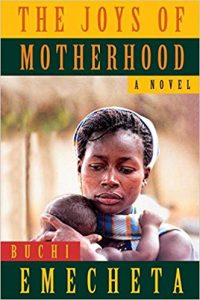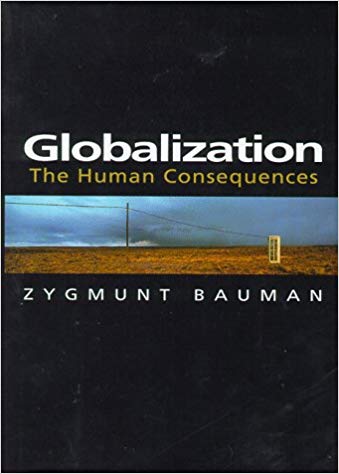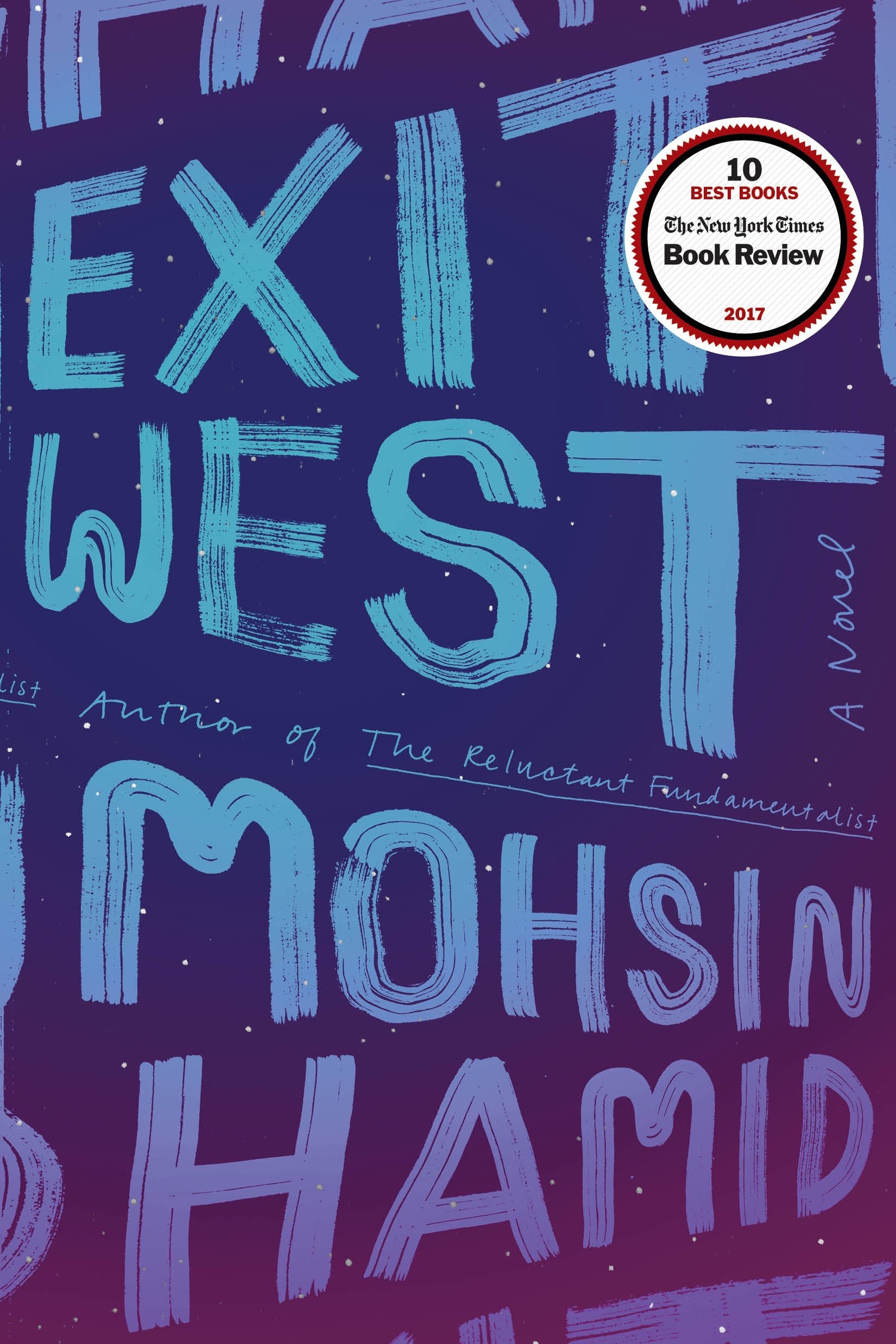Introduction
Buchi Emecheta is indubitably one of the most prominent female voices of postcolonial Africa. I have taught her The Joys of Motherhood in several of my  classes over the years and it has been a great aid in teaching not just the questions of women’s struggles in Nigeria, and postcolonial Africa, but also in explaining as to how the larger structures within which we exist and live our lives, often, determine, or overdetermine, our choices in life. Thus, for so many different reasons, The Joys of Motherhood is one of the finest Postcolonial books I have ever read or taught.
classes over the years and it has been a great aid in teaching not just the questions of women’s struggles in Nigeria, and postcolonial Africa, but also in explaining as to how the larger structures within which we exist and live our lives, often, determine, or overdetermine, our choices in life. Thus, for so many different reasons, The Joys of Motherhood is one of the finest Postcolonial books I have ever read or taught.
Before you start reading the novel, please clear your mind of usual stereotypes about Africa and then prepare your selves to read differently: in my opinion, and my mentor Robin Goodman has a wonderful chapter in one of her books on this, The Joys of Motherhood cannot simply be read as a story of an individual woman’s struggle within the African patriarchy. The novel must be read within its colonial matrix and the proto-neoliberal capitalistic mode of production introduced by the colonizers.
As you read the novel, you will learn that most of Nnu Ego’s trials and tribulations are not necessarily because of the native patriarchy but rather because of the impoverishing urban capitalist system, created and sustained by a colonizing regime, within which she exists. Provided below are some of the things to keep in mind while reading the novel. In other words, like all other postcolonial novels, The Joys of Motherhood should also be read with a certain degree of major debates in postcolonialism.
The Joys of Motherhood: Significance of the Title
Many a times in the novel, you will read a dialog in which women talk about “The Joys of Motherhood,” and the phrase comes across as one of the most significant cultural beliefs within the logic of the female space of the novel. One comes to think, and it is strongly implied in the novel, that within this specific Ibo culture of Nigeria a woman without children is, somehow, incomplete and the only way a woman could claim a fully realized identity is by enjoying the so-called “Joys of Motherhood.” Now how does this desire to be a mother square with postcolonial feminism?
I find the title to be ironic and the narrative a deep critique of cultural valorization of “motherhood” as the ultimate signifier of a woman’s personal and social worth. So even though we learn from the very beginning of the novel that Nnu Ego is fiercely dependent and willful, the novel undercuts that view of her by contrasting it with her absolutely solid belief that without being a mother, she is, somehow, incomplete. But then Emecheta even destabilizes that particular understanding of Nnu Ego, by providing us a catalogue of her struggles throughout her motherhood and her life in the city. How is one to read a novel entitled The Joys of Motherhood, when within the narrative the protagonist, the mother, truly has no time for joy or happiness? In my opinion a reading cognizant of the narrative irony involved within the novel is absolutely necessary in understanding the novel. And if there is any doubt about Emechet’s ironic take on the concept of Joys of Motherhood, then the ending part of the novel completely clarifies it:
She died quietly there, with no child to hold her hand and no friend to talk to her. She had never really made many friends, so busy had she been building her joys as a mother. (224, emph added)
So, overall the title is significant in understanding Nnu Ego’s struggles, for her struggles start as her struggles as a woman but become mostly her struggles as a mother, within postcolonial Africa, and the very fact that her life as a mother that was supposed to give her “joy” does not materialize and only in her death , “She [was given] the noisiest and most costly second burial” (224), does she receive some recognition, some form of joy, from her children!
The Joys of Motherhood: Life within the Colonial Urban Space
Another aspect of the novel, from a postcolonial point of view, is the precarious life of the house servants within the urban colonial space. Note that while Nnu Ego lived within the cultural space of her own primary culture, she, at least, had the protection of her family and she also had material and symbolic claims to her father’s protection and patronage. Her move to the city, severs these connections but instead of connecting her to a democratic public sphere, with some state-provided safety nets, her move to the city renders her entire existence precarious. She also has to reshape her perceptions of her husband; she had not yet interacted with anyone who worked for “white people.” Her husband, Nnaife, to her comes across as less than a man. This aspect of a colonized male identity becomes evident in one of their earlier exchanges:
If you had dared come to my father’s compound to ask for me, my bothers would have thrown you out. My people only let me come to you here because they thought you were like your brother [a “man”], not like this. . .. I would have not left the house of Amatokwu to come and live with a man who washes women’s underwear. AS Man Indeed! (49)
Note the reference to “brothers,” as it points to a rural life where one may be subject to a patriarchal system, but then the traditional patriarchy also provides, at least, a system of protections and privileges. This exchange is also crucial in understanding the material impact of a colonized space on the creation of colonized identities. Nnu Ego immediately realizes that all these men working in the “white man’s” city were not really “men” anymore, but rather something different, something deformed by their subjugation. The colonized urban space is also void of any safety net, or even any ethics of care for the servants and their dependents. Nnu Ego, thus, has to survive through her own entrepreneurial activities and it is her trading that eventually makes it possible to raise her children and send them to schools. So, in so many ways the novel can teach us a lot about the precarious nature of life within the colonized urban spaces and Joys of Motherhood can be a great tool in learning about such experiences of the colonized male and female subjects.
The Joys of Motherhood: Ending as a Critique of Colonialism and of the Native Culture
The novel’s ending, in my opinion, is a critique of both the colonial as well as native culture: It is a critique of the colonial culture that creates a public sphere in which the natives in urban settings, especially women, neither have access to the redemptive care of their own native communities nor any welfare safety net–to be provided by the state–and even when they work hard to raise their children, the success of the children brings no material or emotional comfort to them. In Nnu Ego’s case, even though her children succeed and two of them settle abroad, they are not available during her old age to comfort her or to give her company. In rural native communities, the Joys of Motherhood might have involved raising children so that they would, in your old age, take care of you, but within the colonized capitalistic system, while the native cycle of care has either been weakened or destroyed, there is no system of social care that can aid Nnu Ego’s of the capitalistic world. Sadly, the native people themselves do not realize that Nnu Ego’s life had been harsh and that despite a spectacular “second burial” she cannot be considered a happy spirit and maybe that is why “she does not answer” their prayers, for why would she force the unattainable “Joys of Motherhood,” the kind of joys that never materialized for her, on other women!





[…] “The Joys of Motherhood”: Reading Notes […]